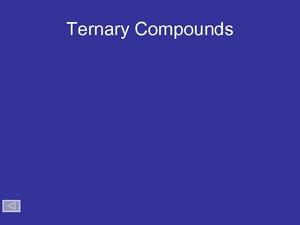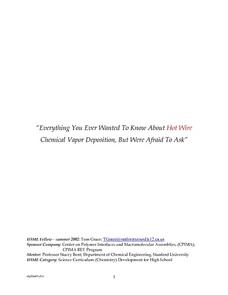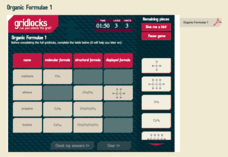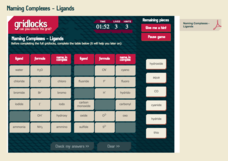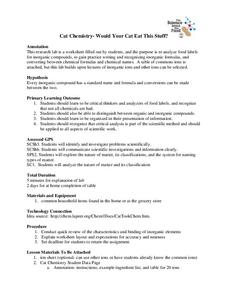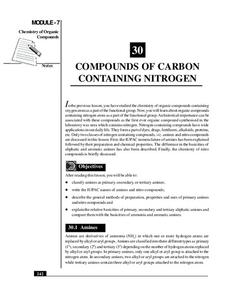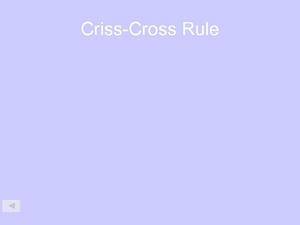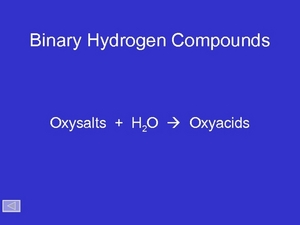Curated OER
Ternary Compounds
Practice naming ternary compounds with this PowerPoint presentation. Individual slides show the patterns for memorizing the nomenclature for polyatomic ions. Several examples are included for student practice. This thorough and...
Curated OER
Everything You Ever Wanted To Know About Hot Wire Chemical Vapor Deposition, But Were Afraid To Ask
To wrap up your year of general chemistry, have lab groups compete in a tot wire chemical vapor deposition (HWCVD) competition. With their foundation in chemical nomenclature, stoichiometry, and gas laws, each group completes several...
Curated OER
Nomenclature Worksheet
As the title suggest, this is an exercise in chemical nomenclature. By completing it, young chemists will practice writing formulas for compounds named, and they will practice naming compounds that are listed by empirical formulas. These...
Royal Society of Chemistry
Some A-level Reagents
Learning names and formulas can be a daunting task for young chemists, so support their study with interactive puzzles! First, users match each formula with its correct name. Then, individuals use them to complete three logic games.
Royal Society of Chemistry
Organic Formulae 2
Is your chemistry class frustrated by the multitude of representations of organic molecules? Add some challenging puzzles to an otherwise ho-hum organic lesson and let the fun begin! The second of a two-part activity focused on basic...
Royal Society of Chemistry
Organic Formulae 1
Puzzles are the formula for success in organic chemistry! Hydrocarbons abound in the first of two interactives involving basic organic molecules. The easy-to-use lesson is available online and in print form, so you can pick your delivery...
Royal Society of Chemistry
Organic Names—Functional Groups
Worried that your lesson plan about functional groups is dysfunctional? Liven things up with interactive puzzles! Curious chemists arrange functional groups based on name, formula, suffix, and an example. The challenge begins when the...
Royal Society of Chemistry
Naming Esters
Do your chemistry scholars know their esters? Introduce the class to the nomenclature and structural formulas of common esters through thought-provoking games. Individuals or pairs of pupils match the name with the formula before using...
Royal Society of Chemistry
Naming Complexes—Ligands
Naming complexes can be, well, pretty complex! Simplify a study of ligands using interactive puzzles. Junior chemists match up the name, formula, and complex name, then solve a series of logic games with the information.
Royal Society of Chemistry
Everyday Chemicals (Ages 11-14)
Caustic soda helps break up clogs in drains in many homes. Scholars match 10 chemical names to their everyday names; for example, caustic soda is sodium hydroxide. Then, they complete three different grid puzzles practicing this skill.
Royal Society of Chemistry
Compounds Ending in 'ate'
Tackle polyatomic ions with Sudoku-like games! Nomenclature novices practice identifying the names and constituents of carbonate compounds with a series of puzzles. Scholars can use the resource online or as a worksheet, thanks to the...
Royal Society of Chemistry
Common Compounds
Can your young chemists identify the most commonly used chemicals in the lab? Introduce the class to the go-to substances in most middle and high school chemistry experiments with an interactive. The resource offers timely feedback as...
National Institute of Open Schooling
Coordination Compounds
Cyanide, a coordination compound, is used in the extraction of gold and silver. Part 24 in the series of 36 delves into the world of coordination compounds. Classes learn, through readings, discussions, and answering questions, how to...
University of Georgia
Would Your Cat Eat This Stuff?
Processed foods use inorganic compounds for flavoring and preservation. This take-home laboratory challenges scholars to find 20 different compounds identified on the labels of foods to list on their data collection sheet. The activity...
National Institute of Open Schooling
Compounds of Carbon Containing Nitrogen
Amines are vital to humans because they help form amino acids, the building blocks of proteins. The 30th lesson in a series of 36 specifically focuses on the organic compounds that contain nitrogen. Learners classify amines and nitro...
National Institute of Open Schooling
Compounds of Carbon Containing Halogens (Haloalkanes and Haloarenes)
Halogens comes from a Greek word which translates to make salt. Lesson 27 in the series of 36 teaches pupils about halogens. Pupils read, discuss, and answer questions in order to learn about haloalkanes and haloarenes. From defining...
National Institute of Open Schooling
Nomenclature and General Principles
Carbon, the base for all organic compounds, exists in nature in its purest form as graphite or diamonds. The 25th lesson in a series of 36 teaches pupils the nomenclature of organic compounds. Learners read about how to use the IUPAC...
Virginia Department of Education
Molecular Model Building
During this hands-on activity, young chemists build molecular models based on the Lewis dot structure before studying valence shell electron pair repulsion theory.
Curated OER
Ionic Nomenclature
One document contains five different worksheets for practice naming and writing formulas for ionic compounds. The first is particularly notable, as it systematically walks beginning chemists through the process of using the periodic...
Curated OER
Unit 3 Bonding
An organized table charting the different types of chemical bonds arrays this resource. The octet rule, ionization energy, and the naming of compounds are also reviewed. Young chemists answer review questions in multiple choice fashion....
Curated OER
Criss-Cross Rule for Binary Compounds
Chemistry aces apply the criss-cross method for finding the formulae of binary compounds. Using aluminum chloride and magnesium oxide as examples, they are guided step-by-step through the process. This is a concise demonstration of this...
Curated OER
Binary Molecular Compounds
A simple set of slides shows chemistry novices how to name binary compounds containing two nonmetals. Instruction and examples are given, making this a practical presentation for your class. Please note that the links to worksheets on...
Curated OER
Binary Hydrogen Compounds
Viewing this slide show prepares your chemistry scholars for chemical nomenclature. Specifically, binary hydrogen compounds and ternary compounds formed from oxyacids are dealt with. One highlight is a useful graphic organizer for naming...
Curated OER
Names and Formulas of Compounds
In this compounds worksheet, students write the name or the formula for the given compounds. This worksheet has 20 problems to solve.


